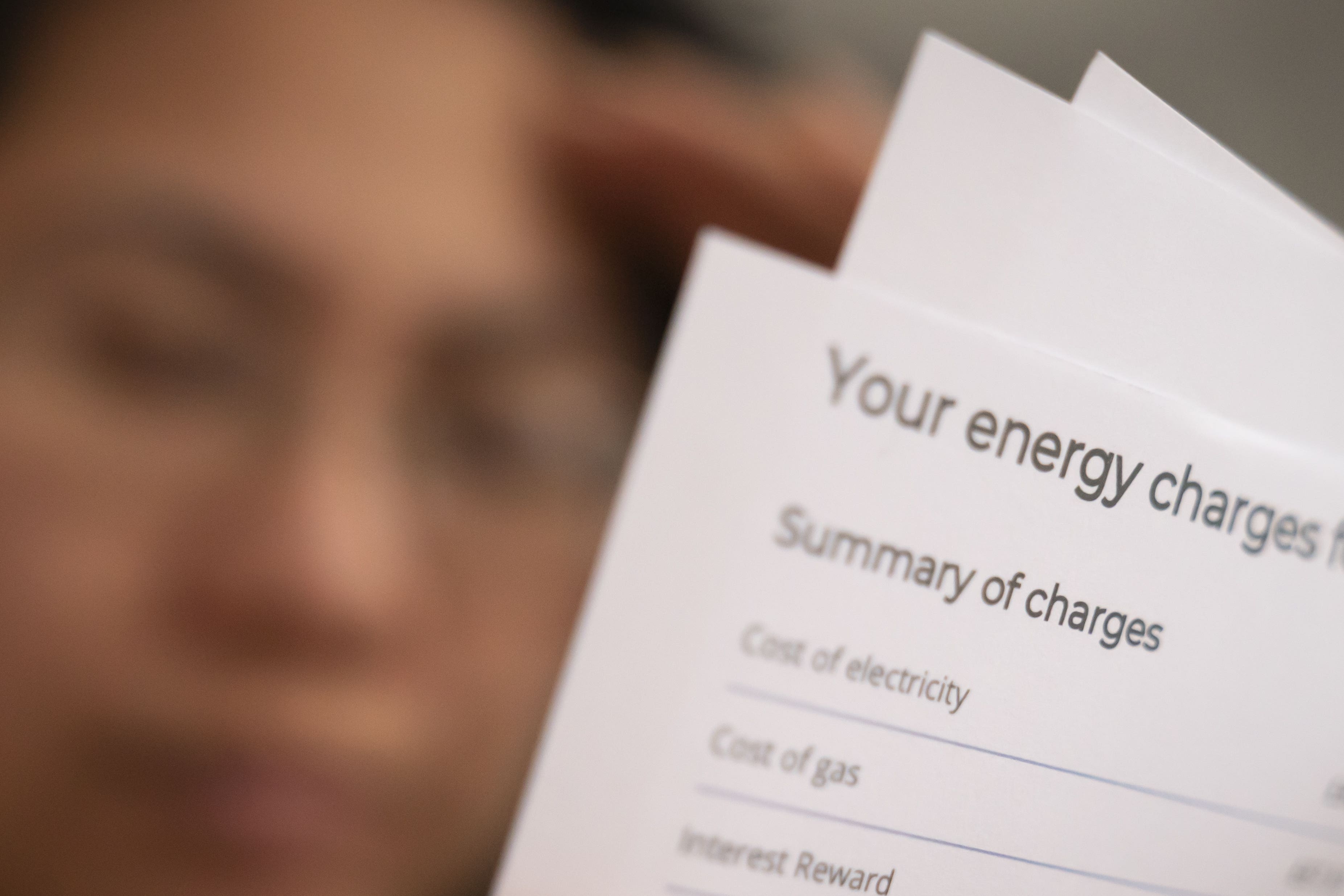Energy bill support took too long to reach consumers, MPs conclude
Public Accounts Committee says about 1.7 million people left waiting months for help

Energy bill support took too long to reach those most in need and the government must clarify how it will protect consumers from future price rises “as a matter of urgency”, MPs have said.
The Public Accounts Committee (PAC) said about 1.7 million people were left waiting months for help due to the government’s “lack of bandwidth” to ensure all groups – including those who were vulnerable – received support at the same time.
The cross-party group said it had “serious concerns” about the Department for Energy Security and Net Zero’s (DESNZ) “lack of urgency in addressing the energy market failures that are leading to high energy bills for consumers”.
In February 2023, DESNZ estimated that support for households and businesses would cost £69 billion, of which £16 billion was paid between October and December 2022.
Around 900,000 households without a direct relationship to a domestic energy supplier, such as those in park homes or living on boats, only became eligible for the domestic consumers’ Energy Bills Support Scheme Alternative Funding on February 27, almost five months after consumers began receiving discounts on the main scheme.
Some 830,000 households in Northern Ireland only began receiving support with their energy bills in January 2023, three months later than in Great Britain.
Conversely, the universal nature of the largest schemes resulted in the department providing support to some homes and businesses that did not necessarily need it.
As of February, a quarter of vouchers issued for the Energy Bills Support Scheme for two million households on traditional prepayment meters had still not yet been redeemed.
The committee highlighted “unacceptable practices” of suppliers forcing entry into vulnerable customers’ homes to install prepayment meters – a practice which has been banned by Ofgem for British Gas but only suspended in voluntary arrangements with other energy suppliers.
When the committee heard evidence in February, household energy bills were expected to increase by another £775 over 2023 and into 2024.
The PAC said it expected an update on plans to ensure energy affordability for next winter, including how it will fix the problems for those most in need.
It has asked DESNZ to provide an update within six months on its plans to ensure energy affordability over the coming winter and its progress with future plans for the domestic scheme, such as capping support to those that use very large volumes of energy and introducing discounts on bills for households on benefits.
PAC chairwoman Meg Hillier said: “The surge in energy prices has caused serious difficulties and hardship for households across the UK.
“It is of course welcome to see government moving quickly to put in place support for both households and businesses to keep the lights on. But many of those who most needed help were kept waiting longest for it. For some households, every day left without support presented impossible choices.
“We need to see better understanding from government on vulnerable customers’ circumstances so that help can be prioritised for those who need it most, and to deliver value for money in these extremely expensive schemes.
“Almost halfway through the year we have not yet seen plans to ensure energy affordability for the coming winter. As a matter of urgency government must show it’s clear not just on how households and businesses will be protected in any future price rises, but how to ensure resilience in the sector as a whole.”
A DESNZ spokesperson said: “Today’s report fails to recognise the complexities of delivering support to households without a direct relationship with a supplier – and it’s right we made sure there was a robust system to help protect people against fraud before rolling it out.
“We’re proud to have delivered nearly £40bn in support, including through the Energy Price Guarantee, getting help to millions in a matter of weeks – with 83% of energy bill support vouchers now redeemed – and including to the people of Northern Ireland who have been receiving help with their energy bills since November.”
National Energy Action chief executive Adam Scorer said: “Even though bills are due to fall by a few hundred pounds per year, energy prices will remain hugely inflated and continue to hit households on the lowest incomes. While the government response has grown to meet this challenge since October 2022, many people who need help the most are falling through the cracks.
“As a minimum, government should be reinvesting any resources that have been committed but haven’t yet been spent. That should support more than 2.5 million low-income and vulnerable households who are no longer receiving any government support.
“Without more targeted support this autumn and winter these households will be exposed to the worst of this ongoing crisis with all the dreadful consequences for health and wellbeing that we have seen day in and day out in recent times.”
Bookmark popover
Removed from bookmarks